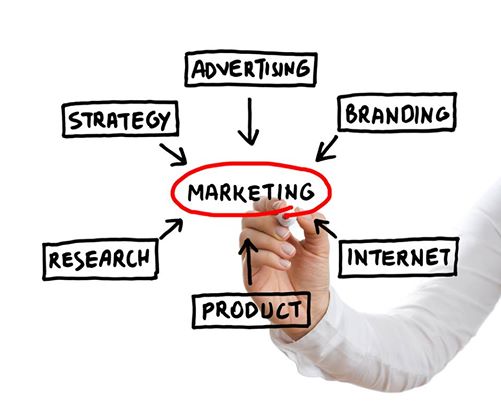
Is Marketing Automation Worth the Investment?
Is Marketing Automation Worth the Investment? https://csuiteold.c-suitenetwork.com/wp-content/uploads/2014/12/Astore_Marketing_Plan.jpg 501 417 C-Suite Network https://csuiteold.c-suitenetwork.com/wp-content/uploads/2014/12/Astore_Marketing_Plan.jpgby Sherry Lamoreaux

Researchers keep saying that marketing automation is growing really, really fast. What’s all the hubbub, Bub? Is it worth the investment?
For most companies, yes. This is more than my (admittedly biased) vested opinion; the research clearly shows companies that use marketing automation skillfully fare better than those that do not use it (or that don’t use it well).
Some of that research is recapped in a new white paper: CEO Perspective: 5 Ways Marketing Automation Can Optimize & Grow Your Business.
CEO Perspective looks at five aspects of marketing automation that let it earn its keep, from the point of view of the C-suite:
1. Improve Revenue Measurement & Management
You know the old saying: “If you can’t measure it, you can’t manage it.” Marketing automation helps you do both. You get to see which campaign touches (both messaging and channels) are working best. This gives guidance on where to put those precious dollars, and it helps your marketing team focus on fine-tuning repeatable processes so you can scale the campaigns that work best.
63 percent of companies that are outgrowing their competitors use marketing automation.
— The Lenskold and Pedowitz Groups, 2013 Lead Generation Marketing Effectiveness Study
2. Reduce Sales & Marketing Friction; Increase Trust and Results
A CEB study showed us that 49 percent of surveyed sales reps ignored more than half of all marketing-provided leads. Friction between marketing and sales is a long tradition, fed by differing goals, mixed messages and missed forecasts. Changing buyer behavior hasn’t eased the tensions. These days, marketing has got to take the football further up the field, driving impact across the entire buying cycle, right up to — and then beyond — the point of a sale.
Digital marketing has made it possible for sales and marketing to work together, determining lead qualification, nurturing strategies and much more. Marketing automation provides the infrastructure that brings the shared process to life, ensuring that the two teams have transparency and accountability to each other. And that, friends, leads to bigger, better deals.
According to Aberdeen Research, companies that are best-in-class at aligning marketing and sales experience a 31.6% average year-over-year growth in annual company revenue, versus 18.2% for the Industry Average and a 6.7% average decrease among Laggards.
3. Improve Marketing Efficiency
The classic benefit is saving time. This happens in multiple ways and places, from creating reusable templates to saving time on email and landing page creation, to creating multi-step automated programs that replicate successful campaigns and run non-stop, 24/7, with speed, scale and accuracy. These and other programs create results that are hard to come by when done manually.
According to The Annuitas Group, nurtured leads make 47 percent larger purchases than non-nurtured leads.
Templeton & Company left the chaos of managing six different marketing tools behind when it moved to an integrated marketing automation program. Sarah Parker, CMO, and Julie Weil, the company’s marketing manager, recently said their marketing automaton platform has cut the time spent on marketing programs in half — which also contributes to the bottom line. “If you add everything up, [our marketing automation platform] is saving us approximately $10,000 a year,” Sarah said. Read the case study.
4. Improve Sales Efficiency
Looking at today’s modern purchase process, marketers using digital marketing can gather information about the prospect’s needs and wants, which in turn provides sales reps with unprecedented insight into a prospect’s interests and pain points. Consider that marketing has been engaging with the lead, building the relationship, and earning trust all through the nurturing process, bringing the buyer near to the point of decision-making. When the hand-off to sales comes, the rep knows exactly how to target the pitch from the moment they engage.
Marketing automation can also build and deliver an up-to-the-minute list of hot prospects prioritized by lead score. This increases sales reps’ efficiency, leading to more closed deals while reducing the costs to earn a new customer.
According to Aberdeen Research, companies that get lead scoring right have a 192 percent higher average lead qualification rate than those that do not.
5. See How to Improve ROI
Marketing automation offers pinpoint, real-time measurement and reporting. With this data at your fingertips, your team has the ability to measure ROI across various sales and marketing efforts. Should you invest in another pay-per-click campaign or hire a new inside sales rep? Advanced ROI reporting made possible by marketing automation enables you and your team to make sound financial decisions based on hard data instead of gut feel or emotion.
B2B organizations with tightly aligned sales and marketing achieved 24 percent faster revenue growth and 27 percent faster profit growth over a three year period, according to SiriusDecisions.
It’s always important to save money where you can — and increase your results when you can. Marketing automation gives you the ability to do both, equipping your team with the tools to revolutionize your marketing and sales organization for greater efficiency and return on investment.
Read the paper: CEO Perspective: 5 Ways Marketing Automation Can Optimize & Grow Your Business.
*This blog originally appeared at Act-On.com
 Sherry Lamoreaux s the editor of Act-On’s Marketing Action blog. She also writes and edits eBooks, white papers, case studies, and miscellanea. She is an award-winning creative writer. Find her on Google+
Sherry Lamoreaux s the editor of Act-On’s Marketing Action blog. She also writes and edits eBooks, white papers, case studies, and miscellanea. She is an award-winning creative writer. Find her on Google+




